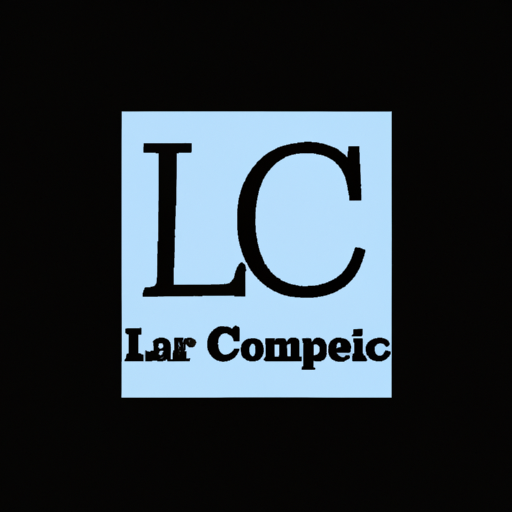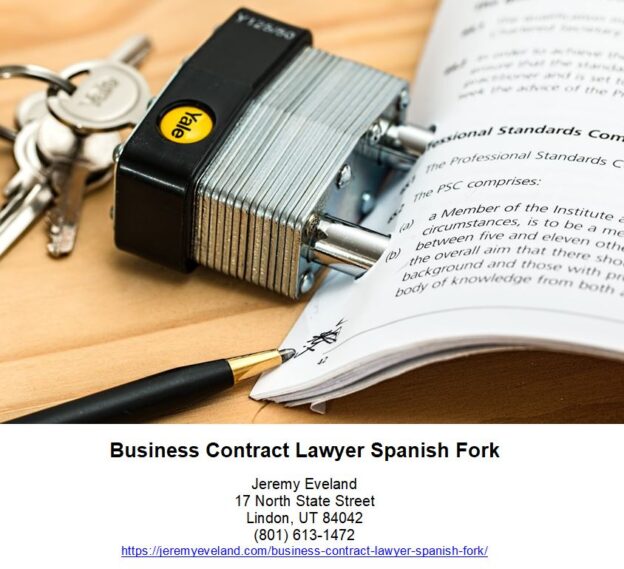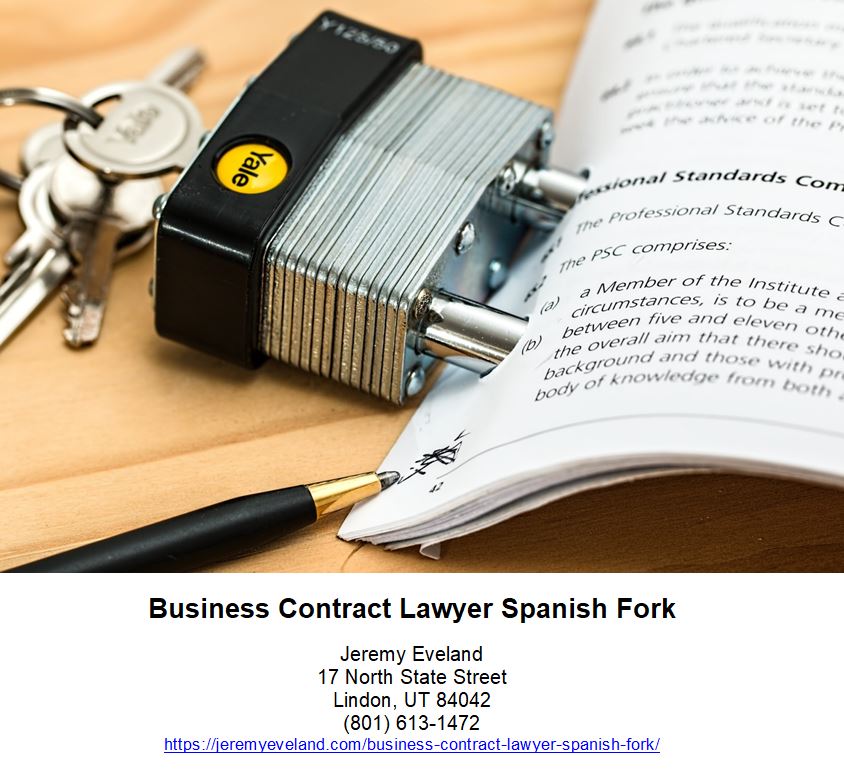-
Corporate Lawyer
- Introduction
- Understanding the Different Types of Legal Solutions Offered by Business Lawyers in St. George, Utah
- The Benefits of Working with a Real Estate Lawyer in St. George, Utah
- The Benefits of Working with a Corporate Lawyer in St. George, Utah
- What to Expect from a Business Lawyer in St. George, Utah
- Business Consulting and Business Strategy in St. George Utah
- Understanding the Different Areas of Business Law in St. George, Utah
- St. George Utah Business Succession Lawyer
- How to Choose the Right Business Lawyer in St. George, Utah
“Secure Your Business with Professional Legal Advice from Business Lawyer St George Utah”
Introduction
Business Lawyer St George Utah is a law firm that specializes in providing legal services to businesses in the St George area. Our team of experienced attorneys is dedicated to providing the highest quality legal advice and representation to our clients. We understand the complexities of business law and strive to provide our clients with the best possible legal solutions. Our attorneys have extensive experience in a variety of areas, including contract law, corporate law, intellectual property law, employment law, and more. We are committed to providing our clients with the highest level of legal service and are dedicated to helping them achieve their business goals.
Understanding the Different Types of Legal Solutions Offered by Business Lawyers in St. George, Utah
Business lawyers in St. George, Utah provide a variety of legal solutions to help businesses succeed. From contract drafting and review to dispute resolution and litigation, these attorneys can help protect your business interests. Here is an overview of the different types of legal solutions offered by business lawyers in St. George, Utah.
Contract Drafting and Review: Business lawyers in St. George, Utah can help you draft and review contracts for your business. This includes contracts for services, employment, and other business agreements. They can also review existing contracts to ensure they are legally sound and protect your interests.
Dispute Resolution: Business lawyers in St. George, Utah can help you resolve disputes with customers, vendors, and other businesses. They can provide advice on how to handle the dispute and represent you in negotiations or mediation.
Litigation: If a dispute cannot be resolved through negotiation or mediation, business lawyers in St. George, Utah can represent you in court. They can help you prepare for trial, present your case, and protect your interests.
Business Formation: Business lawyers in St. George, Utah can help you form a business entity, such as a corporation or limited liability company. They can also help you with the paperwork and filing requirements associated with forming a business.
Business Transactions: Business lawyers in St. George, Utah can help you with business transactions, such as mergers and acquisitions. They can provide advice on the legal implications of the transaction and help you negotiate the terms.
Business lawyers in St. George, Utah can provide a variety of legal solutions to help your business succeed. From contract drafting and review to dispute resolution and litigation, these attorneys can help protect your business interests.
The Benefits of Working with a Real Estate Lawyer in St. George, Utah
When it comes to real estate transactions, it is important to have a knowledgeable and experienced real estate lawyer on your side. Working with a real estate lawyer in St. George, Utah can provide numerous benefits to both buyers and sellers.
For buyers, a real estate lawyer can help to ensure that the purchase agreement is in their best interests. They can review the contract and make sure that all of the terms are fair and that the buyer is not being taken advantage of. They can also help to negotiate any changes that need to be made to the agreement.
For sellers, a real estate lawyer can help to ensure that the sale is completed in a timely manner and that all of the necessary paperwork is in order. They can also help to protect the seller’s interests by making sure that all of the necessary disclosures are made and that the buyer is aware of any potential issues that may arise.
In addition, a real estate lawyer can provide valuable advice on any legal issues that may arise during the transaction. They can help to ensure that all of the necessary documents are filed correctly and that all of the necessary steps are taken to complete the transaction.
Finally, a real estate lawyer can provide peace of mind to both buyers and sellers. They can help to ensure that the transaction is completed in a timely and efficient manner and that all of the necessary steps are taken to protect the interests of both parties.
By working with a real estate lawyer in St. George, Utah, buyers and sellers can rest assured that their interests are being protected and that the transaction is being handled in a professional and efficient manner.
The Benefits of Working with a Corporate Lawyer in St. George, Utah
Working with a corporate lawyer in St. George, Utah can provide a number of benefits to businesses. A corporate lawyer can provide legal advice and guidance on a variety of matters, including business formation, contracts, mergers and acquisitions, and more.
One of the primary benefits of working with a corporate lawyer in St. George, Utah is the ability to receive personalized legal advice. A corporate lawyer can provide tailored advice that is specific to the needs of the business. This can help to ensure that the business is in compliance with all applicable laws and regulations. Additionally, a corporate lawyer can provide guidance on how to best structure the business to maximize its potential.
Another benefit of working with a corporate lawyer in St. George, Utah is the ability to access experienced legal counsel. Corporate lawyers in St. George, Utah have extensive experience in the field and can provide valuable insight into the legal aspects of running a business. This can help to ensure that the business is operating in a manner that is compliant with all applicable laws and regulations.
Finally, working with a corporate lawyer in St. George, Utah can provide peace of mind. A corporate lawyer can provide assurance that the business is operating in a manner that is compliant with all applicable laws and regulations. This can help to ensure that the business is protected from potential legal issues.
Overall, working with a corporate lawyer in St. George, Utah can provide a number of benefits to businesses. A corporate lawyer can provide personalized legal advice, experienced legal counsel, and peace of mind. This can help to ensure that the business is operating in a manner that is compliant with all applicable laws and regulations.
What to Expect from a Business Lawyer in St. George, Utah
If you are looking for a business lawyer in St. George, Utah, you can expect to receive experienced and knowledgeable legal advice. A business lawyer in St. George, Utah will be able to provide you with the legal guidance you need to ensure that your business is compliant with all applicable laws and regulations.
A business lawyer in St. George, Utah will be able to provide you with advice on a variety of topics, including business formation, contracts, intellectual property, taxation, and more. They will be able to help you understand the legal implications of any decisions you make and provide you with the necessary guidance to ensure that your business is operating in a legally compliant manner.
A business lawyer in St. George, Utah will also be able to provide you with assistance in the event of a dispute or litigation. They will be able to represent you in court and provide you with the necessary legal advice to ensure that your rights are protected.
When selecting a business lawyer in St. George, Utah, it is important to ensure that they are experienced and knowledgeable in the area of business law. It is also important to ensure that they are familiar with the laws and regulations that apply to businesses in the state of Utah.
When working with a business lawyer in St. George, Utah, you can expect to receive professional and knowledgeable legal advice. They will be able to provide you with the necessary guidance to ensure that your business is operating in a legally compliant manner. They will also be able to provide you with assistance in the event of a dispute or litigation.
Business Consulting and Business Strategy in St. George Utah
Business consulting and business strategy are essential components of success for any business in St. George, Utah. With the right guidance, businesses can maximize their potential and achieve their goals.
Business consulting is a service that helps businesses identify and address their challenges and opportunities. A business consultant can provide valuable insight into the current state of the business, identify areas of improvement, and develop strategies to help the business reach its goals. Business consultants can also provide guidance on marketing, operations, finance, and other areas of the business.
Business strategy is a plan of action that outlines how a business will achieve its goals. It includes the development of a mission statement, objectives, and strategies to reach those objectives. A business strategy should be tailored to the specific needs of the business and should be regularly reviewed and updated to ensure it is still relevant.
Business consulting and business strategy are essential for businesses in St. George, Utah. With the right guidance, businesses can maximize their potential and achieve their goals. A business consultant can provide valuable insight into the current state of the business, identify areas of improvement, and develop strategies to help the business reach its goals. A business strategy should be tailored to the specific needs of the business and should be regularly reviewed and updated to ensure it is still relevant. With the right guidance, businesses in St. George, Utah can reach their goals and succeed.
Understanding the Different Areas of Business Law in St. George, Utah
Business law in St. George, Utah, is an important area of law that affects businesses of all sizes. It covers a wide range of topics, including contracts, employment law, intellectual property, and more. Understanding the different areas of business law in St. George, Utah, is essential for businesses to ensure they are in compliance with the law.
Contracts are a key area of business law in St. George, Utah. Contracts are legally binding agreements between two or more parties that outline the terms of a transaction. They can be written or verbal, and they must be in compliance with state and federal laws. It is important for businesses to understand the different types of contracts and how to properly draft them to ensure they are legally binding.
Employment law is another important area of business law in St. George, Utah. This area of law covers a wide range of topics, including hiring and firing, wages and hours, discrimination, and more. It is important for businesses to understand their rights and responsibilities under employment law to ensure they are in compliance with the law.
Intellectual property is another important area of business law in St. George, Utah. This area of law covers the protection of creative works, such as trademarks, copyrights, and patents. It is important for businesses to understand their rights and responsibilities under intellectual property law to ensure they are in compliance with the law.
Businesses in St. George, Utah, must also be aware of the different areas of business law that affect their operations. This includes tax law, corporate law, and bankruptcy law. It is important for businesses to understand their rights and responsibilities under these areas of law to ensure they are in compliance with the law.
Understanding the different areas of business law in St. George, Utah, is essential for businesses to ensure they are in compliance with the law. It is important for businesses to understand their rights and responsibilities under each area of law to ensure they are in compliance with the law. By understanding the different areas of business law in St. George, Utah, businesses can ensure they are operating in a legal and compliant manner.
St. George Utah Business Succession Lawyer
If you are a business owner in St. George, Utah, you may be considering succession planning for your business. Succession planning is an important part of any business, as it ensures that the business will continue to operate and thrive even after the current owner has retired or passed away. A St. George Utah business succession lawyer can help you create a plan that will protect your business and ensure its future success.
A business succession lawyer can help you create a plan that will provide for the orderly transfer of ownership and management of your business. This plan should include provisions for the selection of a successor, the transfer of assets, and the management of the business after the transition. The lawyer can also help you create a plan that will provide for the protection of your business’s assets and ensure that the business remains profitable.
The lawyer can also help you create a plan that will provide for the protection of your business’s assets and ensure that the business remains profitable. The lawyer can also help you create a plan that will provide for the protection of your business’s assets and ensure that the business remains profitable. The lawyer can also help you create a plan that will provide for the protection of your business’s assets and ensure that the business remains profitable.
The lawyer can also help you create a plan that will provide for the protection of your business’s assets and ensure that the business remains profitable. The lawyer can also help you create a plan that will provide for the protection of your business’s assets and ensure that the business remains profitable. The lawyer can also help you create a plan that will provide for the protection of your business’s assets and ensure that the business remains profitable.
The lawyer can also help you create a plan that will provide for the protection of your business’s assets and ensure that the business remains profitable. The lawyer can also help you create a plan that will provide for the protection of your business’s assets and ensure that the business remains profitable. The lawyer can also help you create a plan that will provide for the protection of your business’s assets and ensure that the business remains profitable.
A St. George Utah business succession lawyer can help you create a plan that will ensure the future success of your business. The lawyer can provide you with advice on the best way to transfer ownership and management of your business, as well as provide guidance on the best way to protect your business’s assets. With the help of a qualified lawyer, you can ensure that your business will continue to thrive and be successful even after you have retired or passed away.
How to Choose the Right Business Lawyer in St. George, Utah
When it comes to choosing the right business lawyer in St. George, Utah, it is important to take the time to find the right fit for your business. Here are some tips to help you make the best decision:
1. Research: Take the time to research the different business lawyers in St. George, Utah. Look into their experience, qualifications, and areas of expertise. Make sure they have the necessary experience and qualifications to handle your business’s legal needs.
2. Ask for Referrals: Ask your business associates, friends, and family for referrals. This will help you narrow down your list of potential lawyers and make sure you are choosing someone who is experienced and qualified.
3. Interview: Once you have narrowed down your list of potential lawyers, it is important to interview them. Ask questions about their experience, qualifications, and areas of expertise. Make sure you feel comfortable with the lawyer and that they understand your business’s needs.
4. Fees: Make sure you understand the fees associated with the lawyer’s services. Ask about payment plans and any other fees that may be associated with the services.
5. Communication: Make sure the lawyer is easy to communicate with and that they are available to answer any questions you may have.
By following these tips, you can ensure that you are choosing the right business lawyer in St. George, Utah for your business. Taking the time to research, ask for referrals, interview, and understand the fees associated with the lawyer’s services will help you make the best decision for your business.
Areas We Serve
We serve individuals and businesses in the following locations:
Salt Lake City Utah
West Valley City Utah
Provo Utah
West Jordan Utah
Orem Utah
Sandy Utah
Ogden Utah
St. George Utah
Layton Utah
South Jordan Utah
Lehi Utah
Millcreek Utah
Taylorsville Utah
Logan Utah
Murray Utah
Draper Utah
Bountiful Utah
Riverton Utah
Herriman Utah
Spanish Fork Utah
Roy Utah
Pleasant Grove Utah
Kearns Utah
Tooele Utah
Cottonwood Heights Utah
Midvale Utah
Springville Utah
Eagle Mountain Utah
Cedar City Utah
Kaysville Utah
Clearfield Utah
Holladay Utah
American Fork Utah
Syracuse Utah
Saratoga Springs Utah
Magna Utah
Washington Utah
South Salt Lake Utah
Farmington Utah
Clinton Utah
North Salt Lake Utah
Payson Utah
North Ogden Utah
Brigham City Utah
Highland Utah
Centerville Utah
Hurricane Utah
South Ogden Utah
Heber Utah
West Haven Utah
Bluffdale Utah
Santaquin Utah
Smithfield Utah
Woods Cross Utah
Grantsville Utah
Lindon Utah
North Logan Utah
West Point Utah
Vernal Utah
Alpine Utah
Cedar Hills Utah
Pleasant View Utah
Mapleton Utah
Stansbury Par Utah
Washington Terrace Utah
Riverdale Utah
Hooper Utah
Tremonton Utah
Ivins Utah
Park City Utah
Price Utah
Hyrum Utah
Summit Park Utah
Salem Utah
Richfield Utah
Santa Clara Utah
Providence Utah
South Weber Utah
Vineyard Utah
Ephraim Utah
Roosevelt Utah
Farr West Utah
Plain City Utah
Nibley Utah
Enoch Utah
Harrisville Utah
Snyderville Utah
Fruit Heights Utah
Nephi Utah
White City Utah
West Bountiful Utah
Sunset Utah
Moab Utah
Midway Utah
Perry Utah
Kanab Utah
Hyde Park Utah
Silver Summit Utah
La Verkin Utah
Morgan Utah
Business Lawyer St George Utah Consultation
When you need help from a Business Lawyer St George Utah call Jeremy D. Eveland, MBA, JD (801) 613-1472 for a consultation.
Jeremy Eveland
17 North State Street
Lindon UT 84042
(801) 613-1472
Related Posts
Using Disclaimers In Estate Planning
Business Succession Lawyer Spanish Fork Utah
Corporate Attorney St. George Utah
Business Strategy and Consulting
Business Succession Lawyer Roy Utah
Business Lawyer St George Utah
[geocentric_weather id=”8d6fb119-af7d-4769-8b5e-7634206bf314″]
[geocentric_about id=”8d6fb119-af7d-4769-8b5e-7634206bf314″]
[geocentric_neighborhoods id=”8d6fb119-af7d-4769-8b5e-7634206bf314″]
[geocentric_thingstodo id=”8d6fb119-af7d-4769-8b5e-7634206bf314″]
[geocentric_busstops id=”8d6fb119-af7d-4769-8b5e-7634206bf314″]
[geocentric_mapembed id=”8d6fb119-af7d-4769-8b5e-7634206bf314″]
[geocentric_drivingdirections id=”8d6fb119-af7d-4769-8b5e-7634206bf314″]
[geocentric_reviews id=”8d6fb119-af7d-4769-8b5e-7634206bf314″]
















